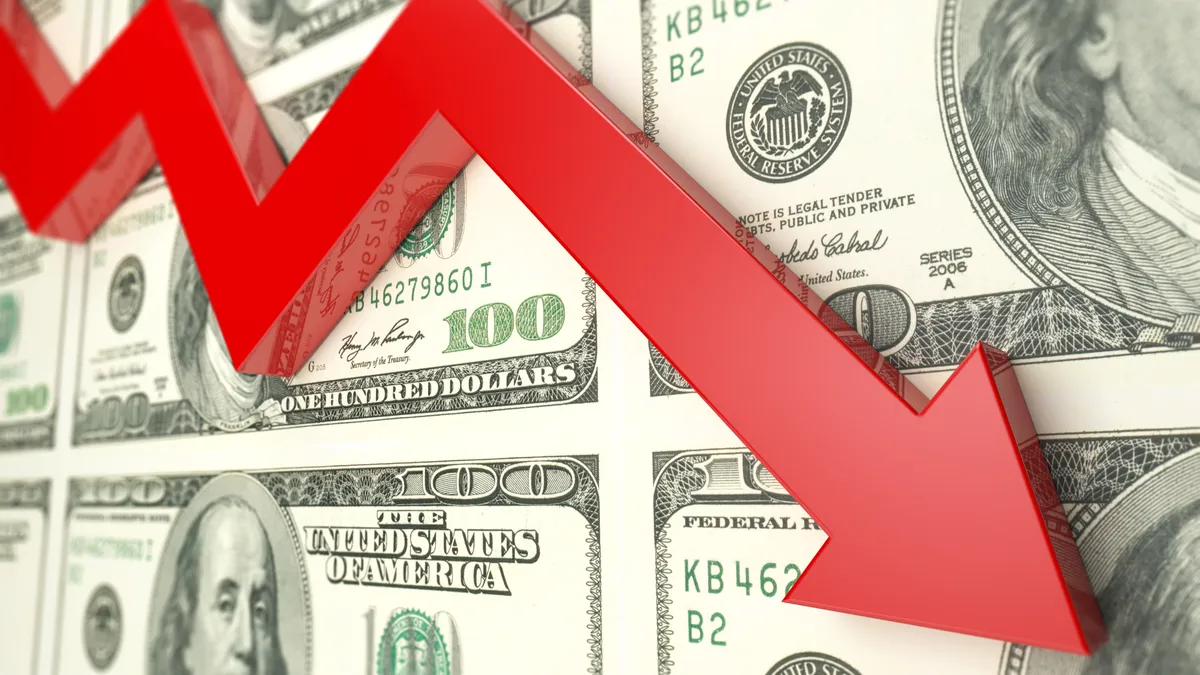Dive Brief:
- Consumers are cautiously drawing up their holiday spending plans, trimming purchases of discretionary and semi-discretionary items in the face of persistent inflation and a murky economic outlook, McKinsey said.
- One in four shoppers plan to spend less for the holidays than during the same time last year, and 46% plan no change in their budgets from 2024, McKinsey said in a report, describing results of a quarterly survey.
- “Many shoppers are approaching the holidays with caution and practicality,” McKinsey said in a report, noting that “consumer optimism has been steadily declining since November 2024.”
Dive Insight:
McKinsey’s survey aligns with recent findings by the Conference Board, Federal Reserve Bank of New York and the University of Michigan that inflation has eroded consumer sentiments.
“Across income groups and generations, sentiments reflect a growing sense of caution and uncertainty,” McKinsey said. “More individuals express mixed feelings about the economy, highlighting how economic pressures are taking a toll on consumer confidence.”
With several measures of inflation exceeding the Fed’s 2% long-run goal, price pressures rank first among consumer worries, McKinsey said.
At the same time, concerns about the highest tariffs in decades have ebbed, with 24% fewer consumers citing them as a top challenge compared with the previous quarterly survey, McKinsey said.
Consumers for the rest of 2025 plan to prioritize purchases of essentials such as gasoline, meat and dairy products, baby supplies and non-alcoholic beverages, according to McKinsey.
Meanwhile, they plan to scale back buying of semi-discretionary products including vehicles; fitness and wellness services; beauty products; and vitamins, supplements and over-the-counter medicine.
“The most striking development is the sharp decline in discretionary spending intentions,” McKinsey said. Consumers plan to spend less on international air travel; sporting and outdoor equipment; home improvement and gardening supplies; cruises; hotels and resorts; and food delivery from an app.
All income groups plan to trim discretionary spending, with higher-income consumers a bit less inclined to frugality, McKinsey said.
Nearly one out of every five Baby Boomers plan not to shop at all for the holidays, exceeding the cross-generational average by 8 percentage points, McKinsey said.
Among Millenials, 37% plan to begin holiday shopping before October, far exceeding the 28% average across all generations, according to McKinsey, which surveyed more than 4,000 consumers last month.
Roughly one out of three consumers plan to shop mostly or entirely on line, while just 16% intend to make most or all of their purchases at a store, McKinsey said.
At the same time, “the in-store shopping experience still holds value for many,” McKinsey said, noting that 54% of consumers plan a mix of online and in-store shopping.
Gift cards are the No. 1 planned purchase for the holidays, favored by 46% of Baby Boomers, McKinsey said. Groceries, apparel, toys and electronics round out the top five categories of goods on holiday shopping lists.
Retailers this holiday season can win over consumers by “offering value-driven options that appeal to budget-conscious shoppers, enhancing omni-channel experiences to provide seamless online and in-store integration and tailoring strategies to reflect the distinct spending priorities of different demographics,” McKinsey said.















